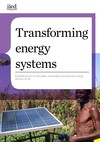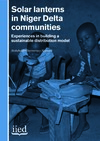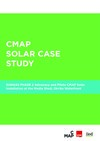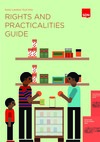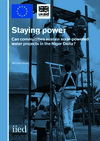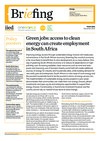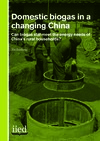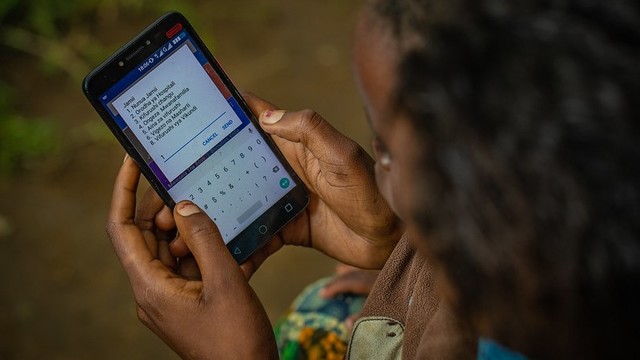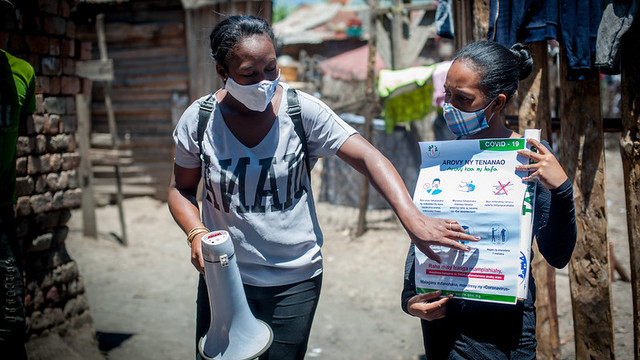Improving people’s access to sustainable energy
One in five people around the world – 1.3 billion people – lack electricity to light their homes or run their businesses, while wealthy countries consume vast amounts of electricity every day. IIED’s energy team works to promote access to sustainable energy for the poorest communities and a more equitable consumption of energy resources. Energy access is an area of great inequity. Access to sustainable modern energy services underpins health, education and livelihoods and increases resilience to climate change – yet millions of people have no access to electricity and use dangerous and unhealthy fuels for lighting and cooking.
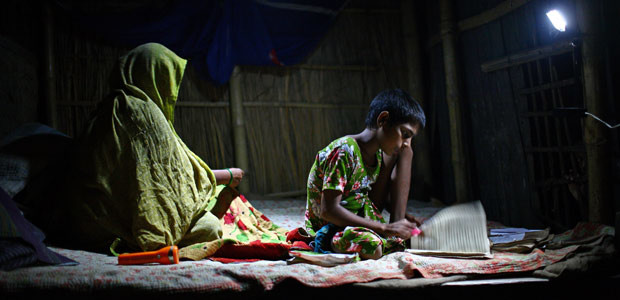
A girl studies under the light of a rechargeable solar lamp. Without the lamp she couldn’t study at night as her home in Natore, Bangladesh has no access to electricity (Photo: copyright G.M.B. Akash/PANOS)
1.3 billion people — 20% of the world's population — have no electricity, and 2.7 billion people do not have clean and safe access to energy for cooking, leading them to breathe in toxic smoke created when burning charcoal, wood, coal or animal waste to cook their food.
IIED researches the potential of initiatives to improve people’s access to sustainable energy to promote socio-economic development and reduce poverty. Adapting initiatives to specific social, cultural and political contexts, learning from successful experiences and scaling up successful pilot projects are all key challenges facing access to energy projects. In-depth case-study analysis of projects and country contexts allows us to explore how to overcome these challenges.
Our approach is to build an ‘evidence base’ for advocacy work with government, business and civil society. Developing this kind of evidence also facilitates advocacy in the policy arena and catalyses change in policy and practice. By building dialogue and problem-solving capacities among stakeholders and promoting good practice – and learning from failure – we seek to stimulate the replication and ‘scaling up’ of effective technologies and approaches.
We commission research in many parts of the globe, including Africa, Asia and Latin America. Some of our recent access to energy research includes:
- a report exploring the key issues for the Ugandan energy sector and potential for renewable energies;
- Case studies from Nepal, Peru and Kenya presenting recommendations on how to provide and implement rural electrification projects in developing countries;
- a report exploring how renewable energy can provide basic lighting and services to remote rural areas beyond the reach of the electrical grid based on an Argentinian government public-private partnership programme (called the PERMER programme).
- HEDON shares information on household energy solutions in developing countries, and coordinates the DELiVER (Decentralised Energy for Livelihoods, Environment and Resilience network, a collection of UK-based organisations focused on delivery models for overcoming the barriers to cleaner, affordable and more convenient energy access in developing countries.
- IIED is collaborating on a book with Practical Action on energy delivery models
- We are building relationships with ground-partners to build in more rigorous monitoring of how particular energy service projects work (or fail) in differing contexts and how they can scale. This helps in building a broader evidence base to enrich our energy delivery models framework. Examples of these partnerships include the SUNGAS project in Nigeria and CHOICES in South Africa.
This project was led by Emma Wilson.
Biomass energy
Many poor countries have vast renewable energy resources that remain untapped, or are used unsustainably. Developing nations have an untapped resource that could enable them to fight poverty, create jobs, gain energy independence and help to both limit and adapt to climate change. An IIED report urges developing nations to take advantage of their dependence on biomass fuels — such as wood and charcoal — and move towards green economies in which the poor benefit from producing sustainable, clean energy.
IIED has carried out research on how to optimise the contribution of woody biomass to renewable energy provision and legitimate income generation, and the pros and cons of biomass. An IIED briefing discusses the potential social impacts of biomass plantations in developing countries and calls for greater public scrutiny and debate about the issue.
We ask some hard questions about biomass investments and this blog and this briefing warns that rising demand for renewable energy sources could drive land grabs.
Biofuels
Africa has recently seen a rapid expansion of biofuel investments. Major agricultural investment in biofuel in, for example, Ghana and Liberia, raises concerns about land-use conflict and food security. IIED is exploring the impacts of the biofuels boom on land access and how different types of business models can provide benefits for smallholders. Very little is known about the exact terms of land deals acquired by agribusiness and government agencies, and a report discusses the contractual issues based on 12 land deals from different parts of Africa.
Our research isn’t just restricted to Africa. A report on the oil palm sector in East Malaysia documents lessons learned through case studies of different business models.
What is the Sustainable Energy for All Initiative?
The UN’s Sustainable Energy for All (SE4ALL) initiative, launched in 2012, aims to improve the lives of the poorest and most vulnerable people by ensuring universal access to modern energy services, increasing the share of renewable energy sources around the world, and improving energy efficiency.
The goals are laudable, but can the initiative make a difference? IIED has carried out some research to make some suggestions on how the UN initiative could best achieve these aims.



